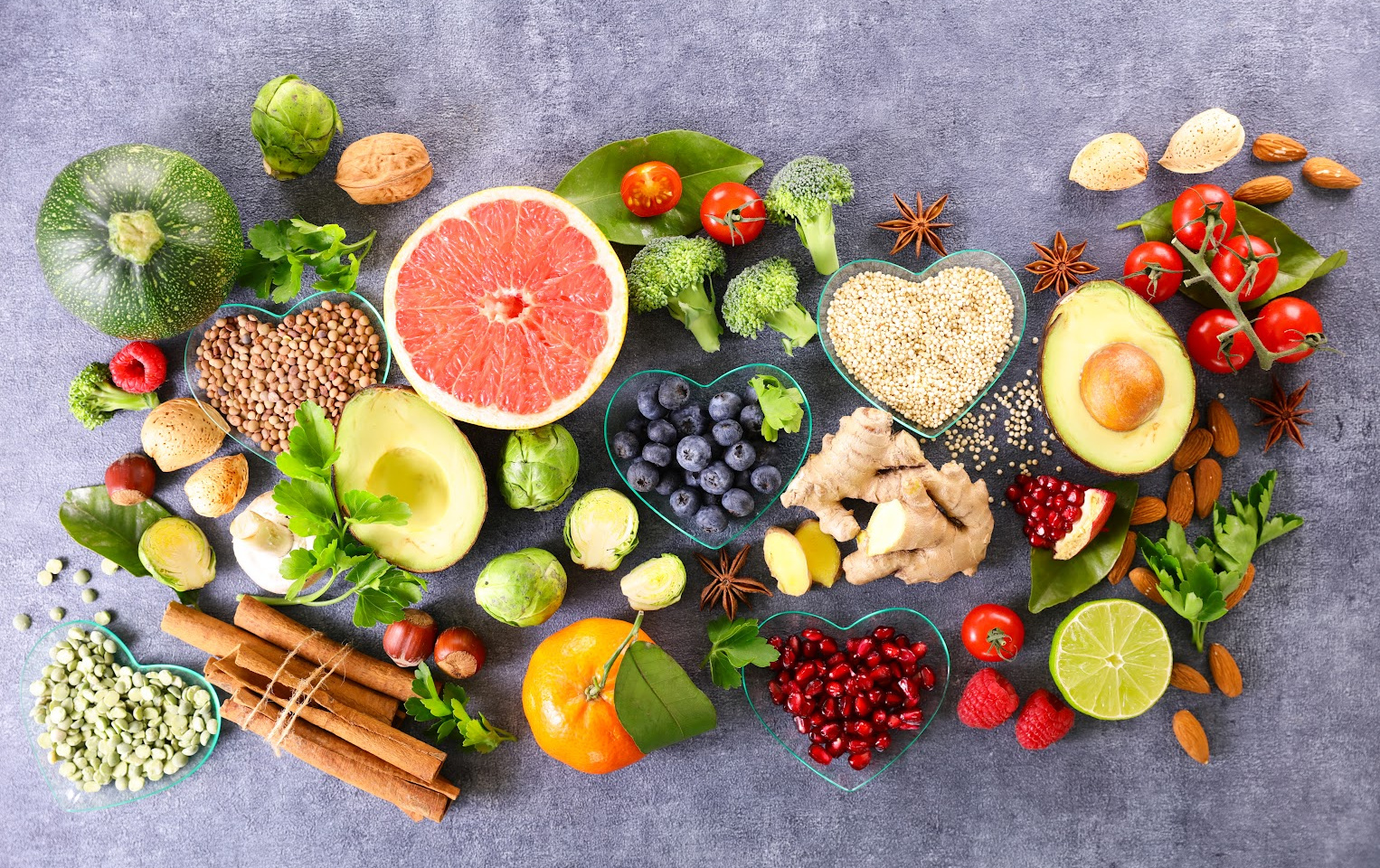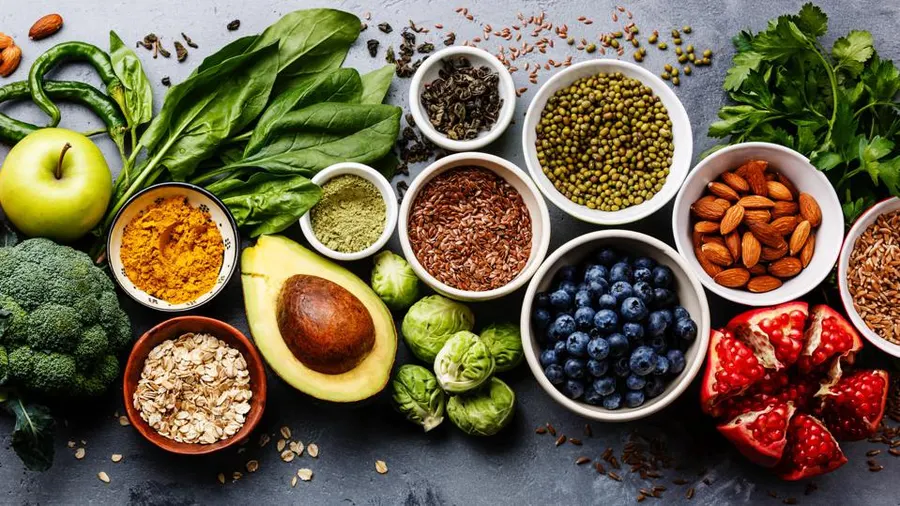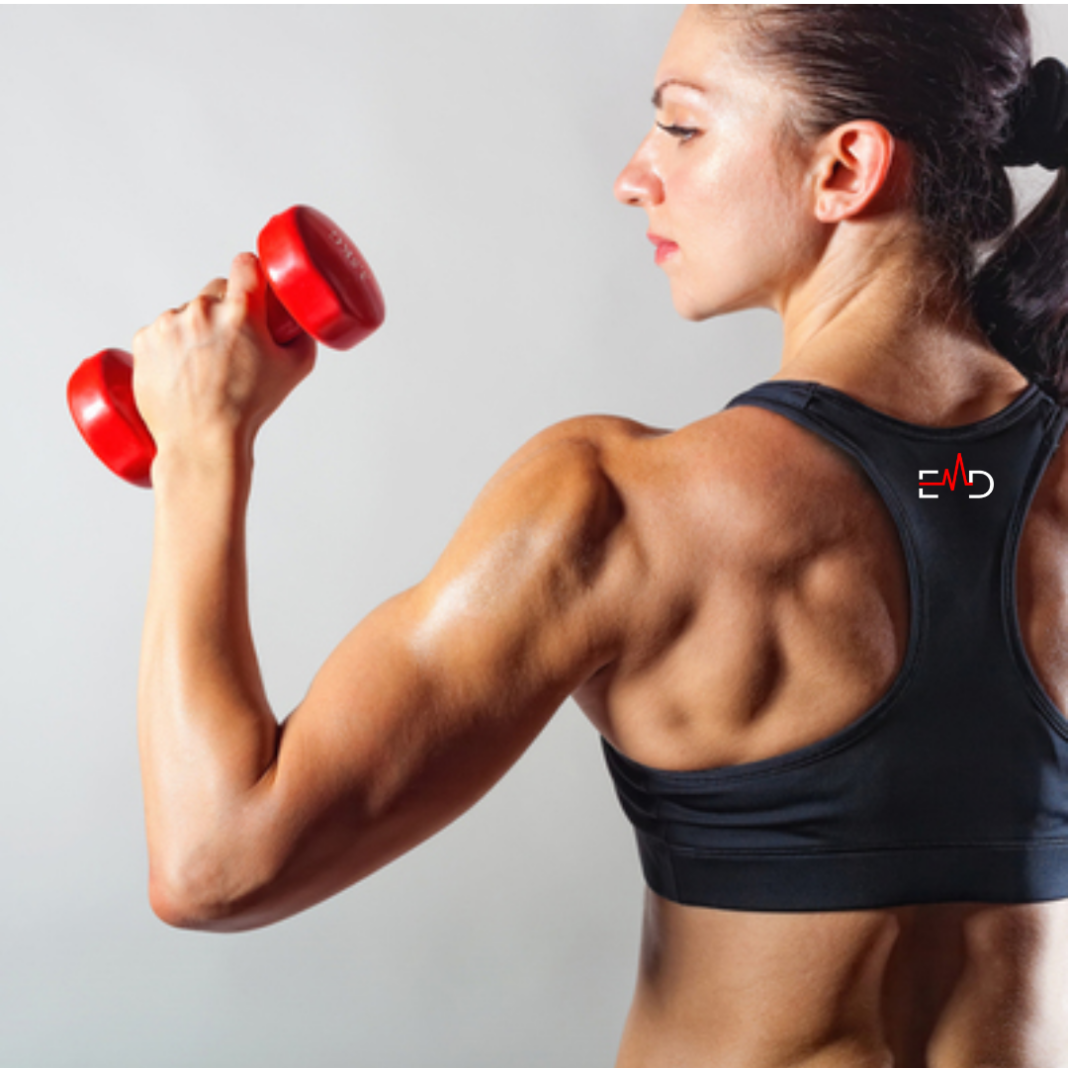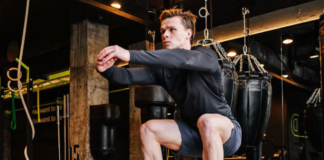Exercise Daily – When striving for peak athletic performance, understanding the role of good nutrition is crucial. Training hard is essential, but your efforts may not yield the desired results without the right nutrients. Eating a balanced diet rich in fruits and vegetables and the right amount of dietary protein can significantly impact performance and overall health. Let’s explore the Nutrition Tips for Peak Athletic Performance.
The American College of Sports Medicine emphasizes that nutrition is essential for athletes, recommending that athletes consume adequate carbohydrates and proteins to support their body’s needs, especially during high-intensity training sessions or competitions. Eating whole foods that are low in fat and rich in nutrients found in natural sources can improve your performance and help you reach your goals.
The Crucial Role of Sports Nutrition
Sports nutrition is more than just choosing the right foods; it’s about providing your body with the necessary nutrients to enhance athletic performance. The right diet can boost energy, improve recovery, and support muscle growth, all essential for athletes. So why is proper nutrition so critical? Without it, your body can’t perform at its best during training and competitions.

Why Athletes Need Proper Nutrition
For athletes, nutrition is key to maintaining energy, supporting muscle repair, and preventing injuries. It also helps manage body weight, which is often critical for performance. Think of your body as a high-performance vehicle; it won’t run efficiently without the right fuel. Similarly, athletes need proper nutrition to ensure their bodies have the energy and strength to excel.
For those engaged in vigorous exercise or preparing for an athletic event, starting with a diet that supports their specific needs is important. Athletes involved in high-intensity activities or those training in hot and humid conditions may benefit from consulting with a sports dietician or health care professional.
Macronutrients: The Foundation of Athletic Performance
Any athlete must understand the role of macronutrients, carbohydrates, proteins, and fats. These nutrients are the primary energy sources and play a significant role in your performance. They can provide advice and guidance tailored to the athlete’s training program. It’s recommended that athletes consume the right amount of carbohydrates and other nutrients to sustain performance and maintain body weight per day.
Good nutrition can help athletes stay energized, recover faster, and achieve their peak potential. Let’s break down each macronutrient and explore how they contribute to athletic excellence.
Carbohydrates: The Primary Source of Energy
Carbohydrates are the preferred energy source for the body, especially during high-intensity exercise. They provide the quick energy needed to sustain athletic performance. Carbohydrates are stored in the muscles and liver as glycogen, readily converted into glucose, the fuel that powers your muscles.
Simple vs. Complex Carbohydrates
Not all carbohydrates are the same. Simple carbohydrates, found in sugary snacks, provide quick energy but can lead to energy crashes. In contrast, complex carbohydrates like those in whole grains offer a steady energy supply, making them a better choice for sustained performance. Athletes should consume complex carbohydrates to maintain energy levels throughout training and competition.
Protein: Essential for Muscle Growth and Recovery
Protein is crucial for muscle growth and recovery. After training, your muscles need to repair and grow stronger, and protein provides the building blocks for this process. Consuming adequate protein minimizes muscle damage and speeds up recovery, which is vital for athletes who train regularly.
How Much Protein Do Athletes Need?
The protein needs of athletes vary depending on their sport, training intensity, and body weight. Generally, athletes should consume 1.2 to 2.0 grams of protein per kilogram of body weight daily. This intake supports muscle maintenance and growth, essential for peak performance.
Fats: Vital for Endurance
While carbohydrates provide quick energy, fats are crucial for long-term endurance. Fats are a slow-burning energy source that athletes rely on during prolonged exercise. Incorporating healthy fats into your diet can improve performance by providing sustained energy.
Healthy Fats vs. Unhealthy Fats
Not all fats are created equal. Healthy fats, like those found in avocados, nuts, and olive oil, support hormone production, joint health, and overall energy levels. On the other hand, trans fats and excessive saturated fats, common in processed foods, can hinder performance and should be avoided.
Hydration: The Key to Sustained Performance
Hydration is a critical aspect of sports nutrition. Even mild dehydration can lead to a noticeable drop in performance. Water is essential for regulating body temperature, transporting nutrients, and eliminating waste products. Athletes must prioritize hydration to maintain peak performance.
The Importance of Staying Hydrated
During intense training or competitions, athletes lose fluids through sweat, affecting body weight and performance. Replacing these lost fluids is crucial to avoid dehydration, which can impair physical and mental abilities.
How Much Water Should Athletes Drink?
Water needs vary based on exercise intensity, duration, and environmental conditions. A general guideline is to drink 16-24 ounces of fluid for every pound of body weight lost during exercise. Additionally, sports drinks can be beneficial as they provide electrolytes to maintain hydration and energy levels.

Nutrient Timing: Eating for Peak Performance
Timing your meals and snacks is essential to optimize performance. Nutrient timing involves consuming the right foods at the right times to enhance energy levels and recovery.
Pre-Exercise Nutrition: Fueling Up for Success
What you eat before a workout sets the stage for your training session. It’s essential to consume a meal high in carbohydrates and moderate in protein about 3-4 hours before exercise. This meal provides the fuel your body needs to perform at its best. Additionally, a small carbohydrate-rich snack 30-60 minutes before exercise can boost your energy.
Post-Workout Nutrition: Recovery and Refueling
After a tough workout, your body needs to recover and refuel. Post-workout nutrition is critical for replenishing glycogen stores, repairing muscles, and restoring energy levels. Consuming a mix of carbohydrates and protein within 30 minutes to 2 hours after exercise can significantly enhance recovery. A smoothie with fruit juice and protein powder or a balanced meal with whole grains, lean protein, and vegetables are excellent options.
Creating a Sports Nutrition Plan for Peak Performance
A personalized sports nutrition plan can help you achieve peak performance by tailoring your diet to your needs. This plan involves understanding your nutritional requirements and timing your meals to support your training and competition schedule. Working with a sports dietitian can provide personalized guidance to optimize your diet for your goals.
Balancing Diet and Training
Achieving peak performance isn’t just about what you eat; it’s about balancing your diet and training. Consistently consuming the right nutrients while following a structured training program ensures your body has the energy, strength, and recovery needed to perform at its best.

The Role of Supplements in Athletic Performance
While a balanced diet should provide most of the nutrients an athlete needs, supplements can sometimes fill in the gaps. Common supplements include protein powders, branched-chain amino acids (BCAAs), and creatine. However, it’s important to remember that supplements should complement a well-rounded diet rather than replace whole foods.
Micronutrients: The Unsung Heroes of Sports Nutrition
While macronutrients get most of the attention, micronutrients—vitamins and minerals—are equally important for athletic performance. These nutrients support various bodily functions, including energy production, immune function, and bone health.
Key Vitamins and Minerals for Athletes
Certain vitamins and minerals are particularly important for athletes:
- Vitamin D: Supports bone health and immune function.
- Calcium: Crucial for bone strength and muscle function.
- Iron: Essential for oxygen transport and energy production.
- Magnesium: Supports muscle relaxation and recovery.
Ensuring adequate intake can help prevent deficiencies that may impair performance.
Special Considerations for Female Athletes
Female athletes have unique nutritional needs to be addressed to achieve peak performance. Factors such as menstrual cycle, bone health, and iron status require careful attention.
Iron Needs in Female Athletes
Iron deficiency is common among female athletes due to menstruation and increased iron demands from training. Adequate iron intake is crucial for preventing fatigue and maintaining performance. Foods rich in iron, such as lean meats, beans, and fortified cereals, should be included in the diet.
Bone Health and the Female Athlete Triad
Female athletes are at risk of the Female Athlete Triad, a condition characterized by energy deficiency, menstrual disturbances, and bone loss. Ensuring adequate calorie intake, calcium, and vitamin D is essential for preventing this condition and maintaining overall health.

Fueling for Specific Sports: Tailoring Nutrition to Your Discipline
Different sports require different nutritional strategies. For example, endurance athletes must focus on carbohydrate loading, while strength athletes may prioritize protein intake. Tailoring your nutrition to your specific sport can optimize performance.
Endurance Sports: Carbohydrate Loading
Endurance athletes need a steady supply of carbohydrates to sustain energy during prolonged exercise. Carbohydrate loading, which involves increasing carbohydrate intake before an event, can help maximize glycogen stores and enhance performance.
Strength Sports: Protein for Muscle Building
Strength athletes require higher protein intake to support muscle growth and recovery. Consuming protein-rich foods throughout the day, especially after workouts, can help build and maintain muscle mass.
The Mental Aspect of Sports Nutrition
Nutrition doesn’t just affect the body; it also impacts the mind. Proper nutrition can enhance focus, mood, and mental endurance, all of which are crucial for athletic success.
Omega-3 Fatty Acids for Brain Health
Omega-3 fatty acids in fish and flaxseeds are essential for brain health. They support cognitive function, reduce inflammation, and may even improve mood. Including omega-3s in your diet can give you a mental edge in sports.
The Impact of Sugar on Mental Performance
While sugar provides a quick energy boost, it can also lead to crashes and mood swings. Limiting refined sugar intake and eating balanced meals can help maintain stable energy levels and mental clarity.
Practical Tips for Implementing Sports Nutrition
Putting sports nutrition principles into practice can be challenging, but with the right strategies, it’s manageable.
Meal Prep for Athletes
Meal prepping is a practical way to ensure nutritious meals are ready, even during busy training schedules. Preparing meals in advance allows you to control portion sizes, balance nutrients, and avoid unhealthy choices.
Reading Nutrition Labels
Understanding nutrition labels is crucial for athletes who want to make informed food choices. Paying attention to serving sizes, macronutrient content, and ingredient lists can help you select foods that align with your performance goals. Look for foods high in complex carbohydrates, quality protein, and healthy fats while being mindful of added sugars and unhealthy fats.
Managing Cravings and Indulgences
Athletes, like anyone else, may experience cravings for less healthy foods. It’s important to manage these cravings without derailing your nutrition plan. Allowing yourself occasional indulgences can prevent feelings of deprivation, but it’s key to practice moderation. Opt for healthier versions of your favorite treats when possible, or plan your indulgences around your training schedule to minimize any negative impact on performance.

The Social Aspect of Sports Nutrition
Eating is often a social activity, and maintaining a nutrition plan can be challenging in social settings. Whether it’s team dinners, family gatherings, or dining out, there are ways to stick to your nutrition goals while enjoying these events.
Making Smart Choices When Dining Out
When eating out, look for menu options that fit your nutrition plan. Opt for grilled or baked proteins, whole grains, and plenty of vegetables. Don’t be afraid to ask for modifications, such as dressing on the side or substituting a side dish for a healthier option. If you know you’ll be dining out, plan your meals earlier in the day to accommodate the occasion.
Navigating Social Situations
In social situations, focusing on the company and conversation is helpful rather than the food. Eating mindfully, savoring each bite, and being aware of portion sizes can help you enjoy the occasion without overindulging. It’s also okay to bring your healthy dish to share, ensuring there’s something nutritious for you to eat.
The Future of Sports Nutrition: Trends and Innovations
The field of sports nutrition is constantly evolving, with new research and innovations emerging. Staying informed about the latest trends can help you optimize your performance.
Personalized Nutrition
Personalized nutrition is a growing trend that involves tailoring dietary recommendations to an individual’s unique genetic makeup, lifestyle, and specific athletic goals. Advances in technology, such as DNA testing and wearable devices, are making it easier for athletes to customize their nutrition plans for maximum effectiveness.
Plant-Based Diets in Sports
The rise of plant-based diets in sports has gained significant attention, with many athletes adopting these diets for health and environmental reasons. Plant-based diets, when well-planned, can provide all the necessary nutrients for athletic performance. Key considerations include ensuring adequate protein, iron, and vitamin B12 intake, often through whole foods and supplements.
Sustainable Sports Nutrition
As awareness of environmental issues grows, many athletes are focusing on sustainable nutrition practices. This includes choosing locally sourced, organic foods, reducing food waste, and opting for plant-based options. Sustainable sports nutrition supports individual health and contributes to the planet’s well-being.

Conclusion
Achieving peak athletic performance requires a holistic approach, with nutrition playing a central role. By focusing on a balanced intake of macronutrients, staying hydrated, timing meals effectively, and considering personalized and sustainable practices, athletes can optimize their performance and reach their full potential. Remember, nutrition is not just about what you eat but how you fuel your body strategically to support your athletic goals. Prioritize your nutrition as much as your training, and you’ll be well on your way to success.
FAQs – Essential Nutrition Tips for Peak Athletic Performance
Q: How does sports nutrition impact athletic performance?
A: Sports nutrition provides the necessary fuel and nutrients to enhance an athlete’s performance. Proper nutrition supports energy production, muscle recovery, and overall health, which are critical for optimal athletic performance.
Q: What should athletes eat before a competition?
A: Athletes should focus on carbohydrates for energy, moderate protein for muscle support, and avoid heavy, fatty foods before a competition. A meal of whole grains, lean protein, and some fruit is a good choice.
Q: How important is hydration for athletes?
A: Hydration is crucial for athletes as it helps maintain body weight, regulate temperature, and support overall performance. Even slight dehydration can negatively impact an athlete’s ability to perform.
Q: Can supplements replace a balanced diet for athletes?
No, supplements should not replace a balanced diet. They can complement your diet by filling nutrient gaps but are not a substitute for whole foods.
Q: What are the best sources of protein for athletes?
A: The best protein sources for athletes include lean meats, poultry, fish, eggs, dairy products, and plant-based options like beans, lentils, and tofu. Protein is vital for muscle repair and growth, especially after exercise.




